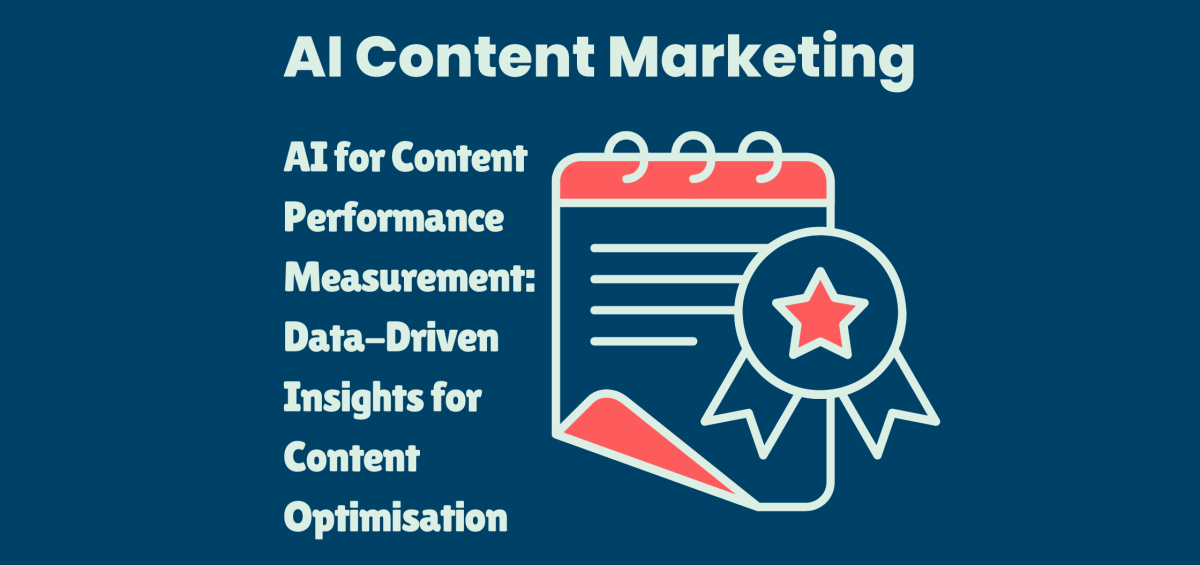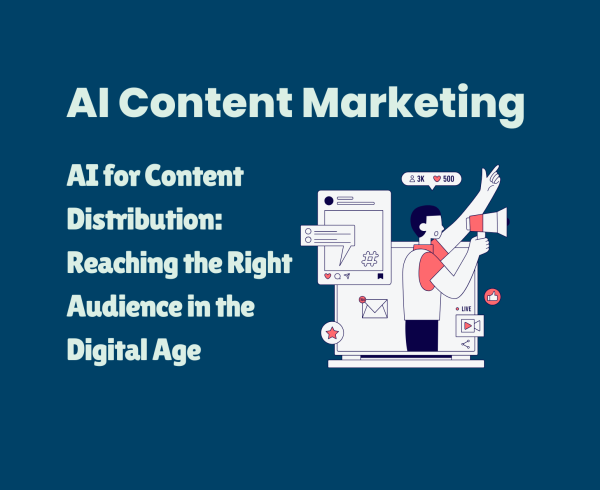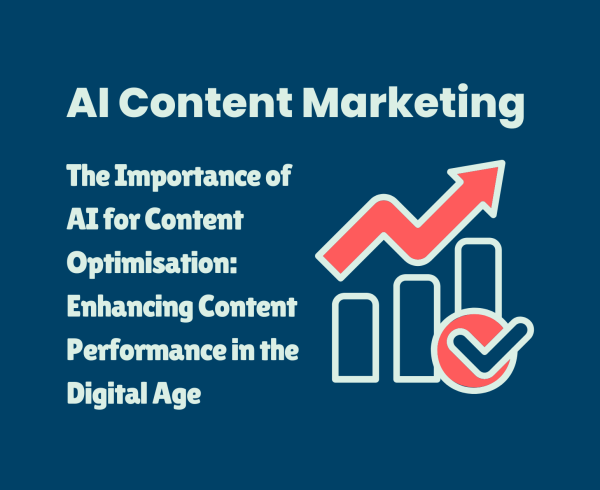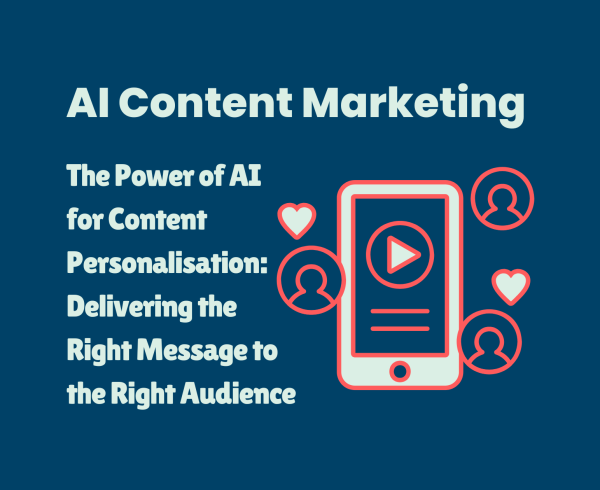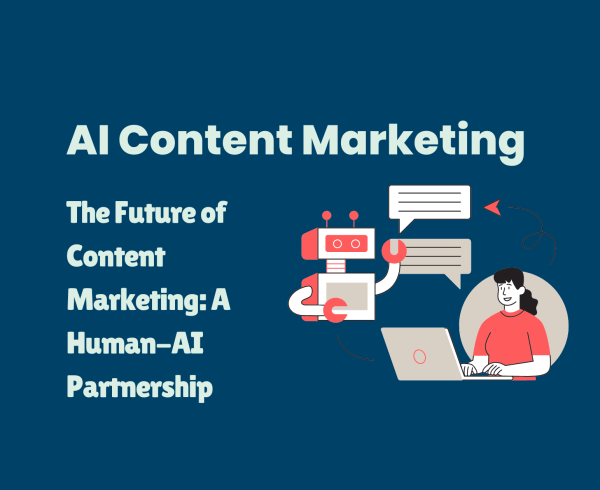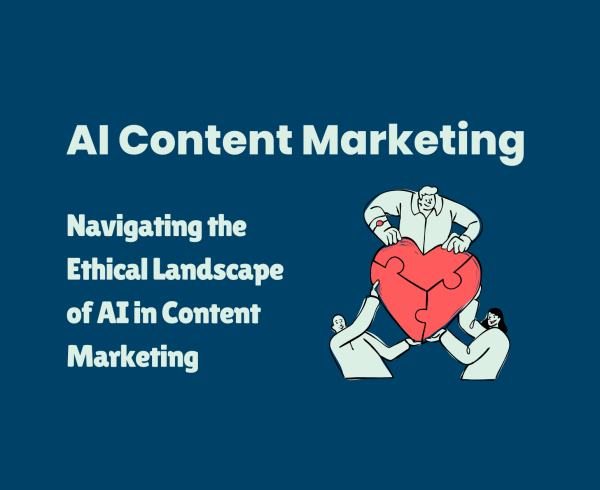In today’s data-driven marketing landscape, measuring content performance is essential for understanding what resonates with audiences, optimizing content strategy, and maximizing return on investment (ROI). Traditional content performance measurement methods can be time-consuming and limited in their ability to analyze vast amounts of data and provide actionable insights. AI offers a powerful toolkit for content performance measurement, enabling marketers to gain a deeper understanding of their content’s impact, identify areas for improvement, and make data-driven decisions to optimize their content strategy. This article explores the importance of AI for content performance measurement, delves into its capabilities, and provides a roadmap for implementation.
- The Importance of Measuring Content Performance
Measuring content performance is the process of tracking and analyzing key metrics to understand how content is performing and identify areas for improvement. It provides valuable insights into audience engagement, content effectiveness, and the overall impact of content marketing efforts.
Benefits of Measuring Content Performance:
- Data-Driven Decision Making: Measuring content performance provides data-driven insights that inform content strategy and optimization decisions.
- Improved Content Quality: Analyzing performance data helps identify areas for improvement in content quality, such as clarity, relevance, and engagement.
- Increased ROI: Measuring content performance helps marketers understand which content is driving the best results, allowing for optimization and maximizing ROI.
- Enhanced Audience Understanding: Performance data provides insights into audience behavior and preferences, enabling marketers to create more targeted and effective content.
- Content Strategy Alignment: Measuring content performance ensures that content strategy is aligned with business goals and objectives.
- How AI Can Help with Content Performance Measurement
AI empowers marketers to measure content performance more effectively by analyzing vast amounts of data, automating reporting, and providing predictive insights. AI algorithms can:
- Analyze Content Performance Data: AI analyzes content performance data from various sources, such as website analytics, social media platforms, and marketing automation tools, to identify trends and patterns.
- Generate Automated Reports: AI automates the generation of content performance reports, saving marketers time and effort.
- Provide Predictive Insights: AI predicts future content performance based on historical data and trends, enabling marketers to make proactive optimization decisions.
- Identify Key Performance Indicators (KPIs): AI identifies the most important KPIs for measuring content performance based on business goals and objectives.
- Offer Optimization Recommendations: AI provides specific recommendations for content optimization based on performance data and insights.
- AI for Content Performance Measurement for Websites
AI enhances website content performance measurement by analyzing user behavior, tracking conversions, and providing insights into content effectiveness.
- Website Analytics: AI analyzes website traffic data, such as page views, bounce rates, and time on page, to understand user behavior and content engagement.
- Conversion Tracking: AI tracks conversions, such as form submissions and purchases, to measure the effectiveness of content in driving desired actions.
- Content Attribution: AI attributes conversions to specific content pieces, helping marketers understand which content is driving the best results.
- Heatmaps and Scrollmaps: AI generates heatmaps and scrollmaps to visualize user behavior on webpages, identifying areas of interest and engagement.
- A/B Testing: AI automates A/B testing of different content variations, identifying the most effective versions for different audiences and goals.
Examples: Google Analytics, Adobe Analytics, and Parse.ly are website analytics tools that incorporate AI to measure content performance.
- AI for Content Performance Measurement for Social Media
AI optimizes social media content performance measurement by analyzing engagement, reach, and sentiment, providing insights into content effectiveness.
- Social Media Analytics: AI analyzes social media data, such as likes, shares, comments, and reach, to understand audience engagement and content performance.
- Sentiment Analysis: AI analyzes social media conversations to understand audience sentiment towards content and brand, providing insights into content effectiveness.
- Social Listening: AI monitors social media conversations to identify relevant trends, mentions, and feedback, providing valuable insights for content optimization.
- Influencer Marketing: AI measures the effectiveness of influencer marketing campaigns by tracking reach, engagement, and conversions.
- Social Media Reporting: AI automates the generation of social media performance reports, providing marketers with a comprehensive view of their content’s impact.
Examples: Sprout Social and Emplifi are social media analytics tools that leverage AI to measure content performance.
- AI for Content Performance Measurement for Email Marketing
AI enhances email marketing content performance measurement by analyzing open rates, click-through rates, and conversions, providing insights into campaign effectiveness.
- Email Marketing Analytics: AI analyzes email marketing data, such as open rates, click-through rates, and conversions, to understand audience engagement and campaign performance.
- Subject Line Optimization: AI analyzes subject line performance and provides suggestions for improvement to increase open rates.
- Send Time Optimization: AI predicts the optimal times to send emails to each user, maximizing open rates and click-through rates.
- Email Deliverability: AI can improve email deliverability by identifying and addressing potential issues, such as spam triggers and bounces.
- Email Segmentation: AI segments email lists based on user characteristics and behavior, allowing for targeted content delivery and improved performance measurement.
Examples: Hubspot, Mailchimp, Klaviyo, and ActiveCampaign are email marketing platforms that utilize AI for content performance measurement.
- AI for Content Performance Measurement for Paid Advertising
AI optimizes paid advertising content performance measurement by analyzing ad spend, conversions, and return on ad spend (ROAS), providing insights into campaign effectiveness.
- Paid Advertising Analytics: AI analyzes paid advertising data, such as impressions, clicks, conversions, and ROAS, to understand campaign performance and identify areas for improvement.
- Audience Targeting: AI analyzes user data to identify the most relevant audience segments for paid advertising campaigns, improving targeting and performance measurement.
- Bid Optimization: AI adjusts bids in real-time to maximize ad performance and ROAS, ensuring that ad spend is used effectively.
- Ad Creative Optimization: AI personalizes ad creatives, such as headlines, images, and calls to action, based on user characteristics and behavior, improving engagement and performance measurement.
- Landing Page Optimization: AI analyzes landing page performance and provides suggestions for improvement to increase conversion rates, ensuring that paid advertising campaigns drive desired actions.
Examples: Google Ads, Facebook Ads, and LinkedIn Ads all utilize AI for content performance measurement.
- The Future of AI for Content Performance Measurement
The future of AI for content performance measurement is promising, with advancements in AI technology promising even more sophisticated and impactful measurement capabilities.
- Hyper-personalization: AI will enable even more granular personalization of content performance measurement, tailoring insights and recommendations to individual needs and preferences in real-time.
- Predictive Analytics: AI will predict content performance and user behavior, enabling proactive optimization and maximizing content ROI.
- Automated Reporting: AI will automate more aspects of content performance measurement, freeing up marketers to focus on strategic initiatives.
- Multi-Channel Measurement: AI will measure content performance across multiple channels and platforms, providing a holistic view of content effectiveness.
- Case Studies in AI-Powered Content Performance Measurement
Numerous companies are achieving remarkable results with AI-powered content performance measurement. Here are a few examples:
- HubSpot: HubSpot uses AI to measure content performance across various channels, providing insights into audience engagement, content effectiveness, and ROI.
- Adobe: Adobe uses AI to measure the effectiveness of its marketing content, personalizing customer experiences, and optimizing content delivery.
- Salesforce: Salesforce uses AI to measure content performance and provide personalized content recommendations, improving lead generation and customer engagement.
Conclusion
AI is transforming content performance measurement, providing marketers with the tools and insights to understand their content’s impact, identify areas for improvement, and make data-driven decisions to optimize their content strategy. By leveraging AI’s capabilities, marketers can gain a deeper understanding of audience engagement, content effectiveness, and the overall impact of their content marketing efforts. As AI technology continues to evolve, the future of content performance measurement is full of promise and potential. Companies that embrace AI and adopt a human-AI collaborative approach to content performance measurement will be well-positioned to thrive in the future of content marketing.

